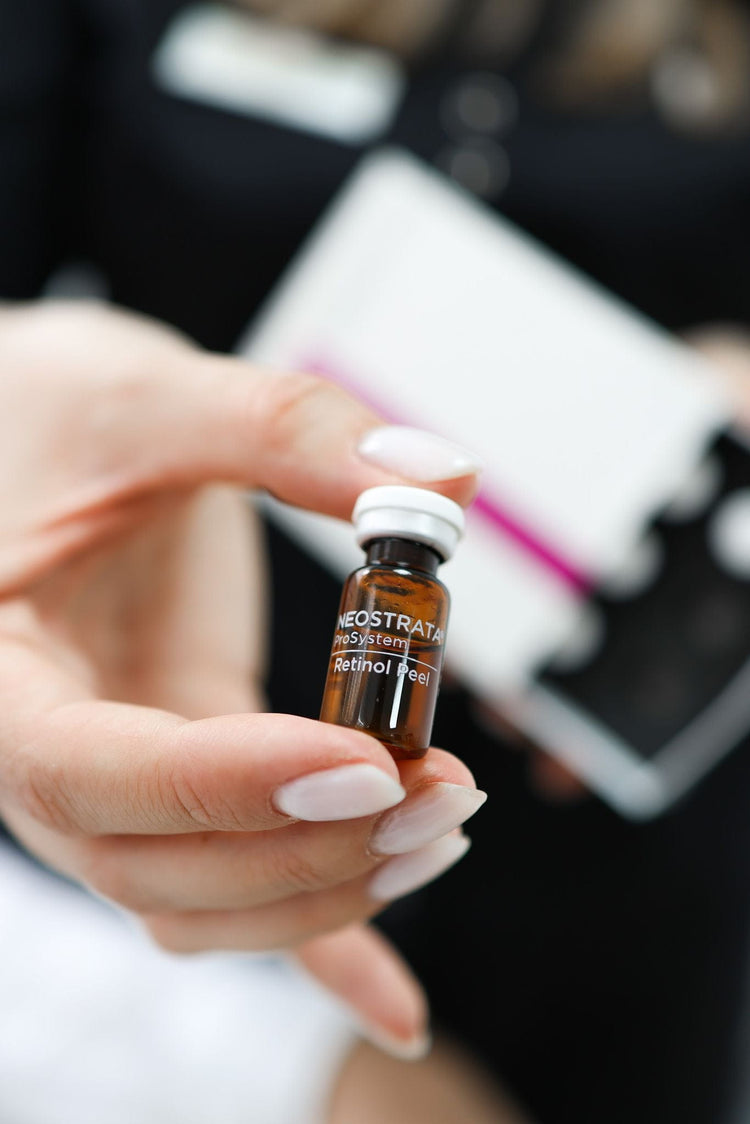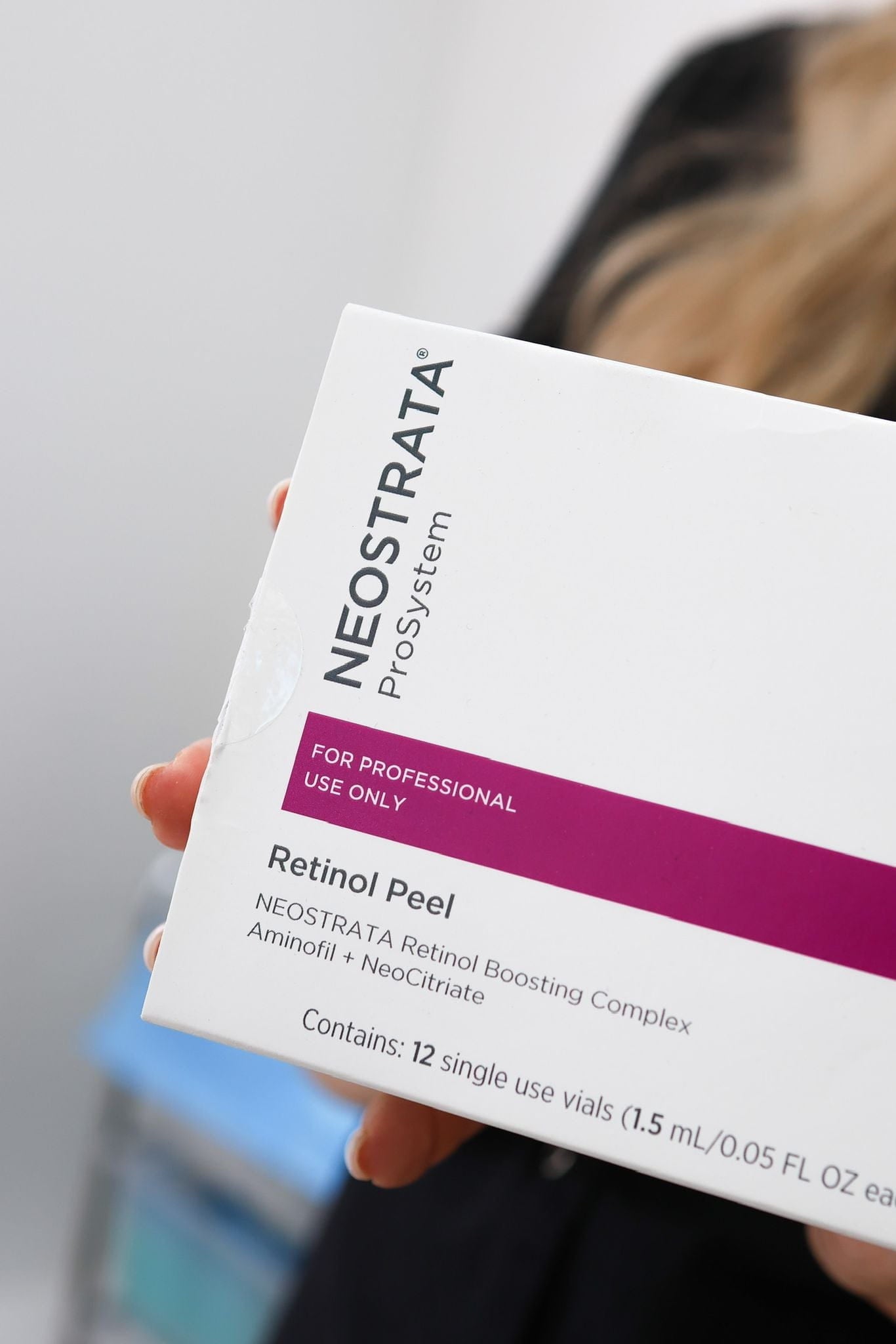Benefits of Retinol Peels
Retinol peels are a popular skin treatment known for their ability to address a variety of concerns, including wrinkles, fine lines, acne, and uneven skin tone. These peels work by using a solution containing retinol, a form of Vitamin A, to exfoliate the top layer of skin, promoting cell turnover and revealing smoother, brighter skin.
Reduced wrinkles and fine lines
One of the primary benefits of retinol peels is their effectiveness in reducing the appearance of wrinkles and fine lines. Retinol stimulates collagen production, which helps plump up the skin and minimize the visibility of these signs of aging.
Improved skin texture
Retinol peels also significantly improve skin texture. By exfoliating dead skin cells, retinol peels reveal a smoother and more refined surface. This can make skin appear less rough, uneven, or bumpy, leading to an overall improvement in its appearance.
Minimized acne scars
Minimized acne scars are another notable benefit of retinol peels. Retinol helps to stimulate collagen production, which can help fill in the depressions left by acne scars, making them less noticeable.

Evened skin tone
Perhaps one of the most sought-after benefits of retinol peels is their ability to even skin tone. Retinol works to reduce the appearance of hyperpigmentation, which are dark patches or spots on the skin caused by excess melanin production. By promoting cell turnover and encouraging the shedding of pigmented cells, retinol peels help create a more uniform complexion.
Potential Risks and Side Effects
While retinol peels offer numerous potential benefits for the skin, it’s crucial to be aware of potential risks and side effects. These can include redness, irritation, dryness, peeling, and increased sun sensitivity. Individuals with sensitive skin or pre-existing skin conditions should exercise caution and consult with a dermatologist before undergoing a retinol peel.
Skin irritation and redness
Skin irritation and redness are common side effects of retinol peels. This is because the exfoliating nature of retinol can temporarily disrupt the skin’s protective barrier, leading to inflammation and flushing.
The severity of these reactions varies depending on individual skin sensitivity and the concentration of retinol used in the peel.

Sun sensitivity
Increased sun sensitivity is a significant risk associated with retinol peels. Retinol can make the skin more vulnerable to sun damage, as it increases cell turnover and thins the outer layer of skin. It is crucial for individuals who undergo retinol peels to wear sunscreen daily with an SPF of 30 or higher, even on cloudy days.
To minimize the risk of sun sensitivity, it’s recommended to avoid direct sun exposure for several days before and after a retinol peel.
Dryness and peeling
Dryness and peeling are common side effects of retinol peels. The exfoliation process removes the top layer of skin, which can leave skin feeling dry and flaky.
To manage dryness and peeling, it is important to moisturize regularly with a hydrating serum or cream containing hyaluronic acid or ceramides.
Suitable Skin Types for Retinol Peels
Retinol peels offer numerous benefits for various skin concerns, but their suitability depends on individual skin types.
Normal skin**
Normal skin is generally well-suited for retinol peels. Individuals with normal skin typically have a balanced sebum production, even tone, and minimal blemishes or imperfections. Retinol’s exfoliating and collagen-stimulating properties can effectively address fine lines, improve texture, and enhance overall skin radiance in those with normal skin.
Oily skin**
Oily skin types can often benefit from retinol peels. The exfoliating action of retinol helps control excess sebum production, leading to a reduction in oiliness and minimized pores. Retinol also promotes cell turnover, helping to prevent clogged pores that contribute to acne breakouts.
Combination skin**
Combination skin can be treated with retinol peels, but it’s important to consider the unique characteristics of this skin type. Combination skin presents a mix of oily zones (usually the T-zone) and drier areas.
When using a retinol peel on combination skin, it’s often beneficial to tailor the treatment to address the specific needs of each area. The oilier zones may benefit from a stronger concentration of retinol, while drier areas might require a gentler approach. It’s advisable to consult with a dermatologist or esthetician who can assess your skin type and recommend a customized treatment plan.
Considerations for Individuals with Specific Skin Concerns
Individuals with specific skin concerns should carefully consider the potential benefits and risks associated with retinol peels before undergoing the treatment.
Sensitive skin**
Sensitive skin is particularly prone to irritation and adverse reactions from retinol peels. The exfoliating nature of retinol can exacerbate existing sensitivities, leading to redness, itching, burning, or even allergic reactions. Individuals with sensitive skin should proceed with extreme caution and consider milder alternatives or discuss their options with a dermatologist.
If you do choose to have a retinol peel, it’s crucial to start with a low concentration of retinol and gradually increase the strength as tolerated. Patch testing a small area of skin before a full treatment can help determine your skin’s sensitivity and potential for adverse reactions.
Rosacea**
Retinol peels offer numerous benefits for various skin concerns, but their suitability depends on individual skin types.
- Normal skin is generally well-suited for retinol peels. Individuals with normal skin typically have a balanced sebum production, even tone, and minimal blemishes or imperfections. Retinol’s exfoliating and collagen-stimulating properties can effectively address fine lines, improve texture, and enhance overall skin radiance in those with normal skin.
- Oily skin types can often benefit from retinol peels. The exfoliating action of retinol helps control excess sebum production, leading to a reduction in oiliness and minimized pores. Retinol also promotes cell turnover, helping to prevent clogged pores that contribute to acne breakouts.
- Combination skin can be treated with retinol peels, but it’s important to consider the unique characteristics of this skin type. Combination skin presents a mix of oily zones (usually the T-zone) and drier areas. When using a retinol peel on combination skin, it’s often beneficial to tailor the treatment to address the specific needs of each area. The oilier zones may benefit from a stronger concentration of retinol, while drier areas might require a gentler approach. It’s advisable to consult with a dermatologist or esthetician who can assess your skin type and recommend a customized treatment plan.
- Individuals with sensitive skin are particularly prone to irritation and adverse reactions from retinol peels. The exfoliating nature of retinol can exacerbate existing sensitivities, leading to redness, itching, burning, or even allergic reactions. Individuals with sensitive skin should proceed with extreme caution and consider milder alternatives or discuss their options with a dermatologist.
Hyperpigmentation**
Hyperpigmentation, the darkening of skin patches caused by excess melanin production, can be effectively addressed by retinol peels. Retinol promotes cell turnover and inhibits melanin synthesis, leading to a more even complexion. Individuals struggling with dark spots, sun spots, or post-inflammatory hyperpigmentation can find significant improvement with retinol peel treatments.
It’s essential for those with hyperpigmentation to use sunscreen diligently before and after retinol peels, as the treatment increases skin sensitivity to the sun. Protecting the skin from further sun damage is crucial to prevent darkening of existing hyperpigmentation or the formation of new spots.
Experience youthful skin with a Retinol Peel at It’s Me & You Clinic with Dr. Laura Geige.
- Is 50 Too Old For Fillers? - September 29, 2025
- How To Incorporate CBD Gummy Edibles Into Your Health Regimen - September 28, 2025
- How Much Is Lip Filler In The Uk - September 27, 2025
